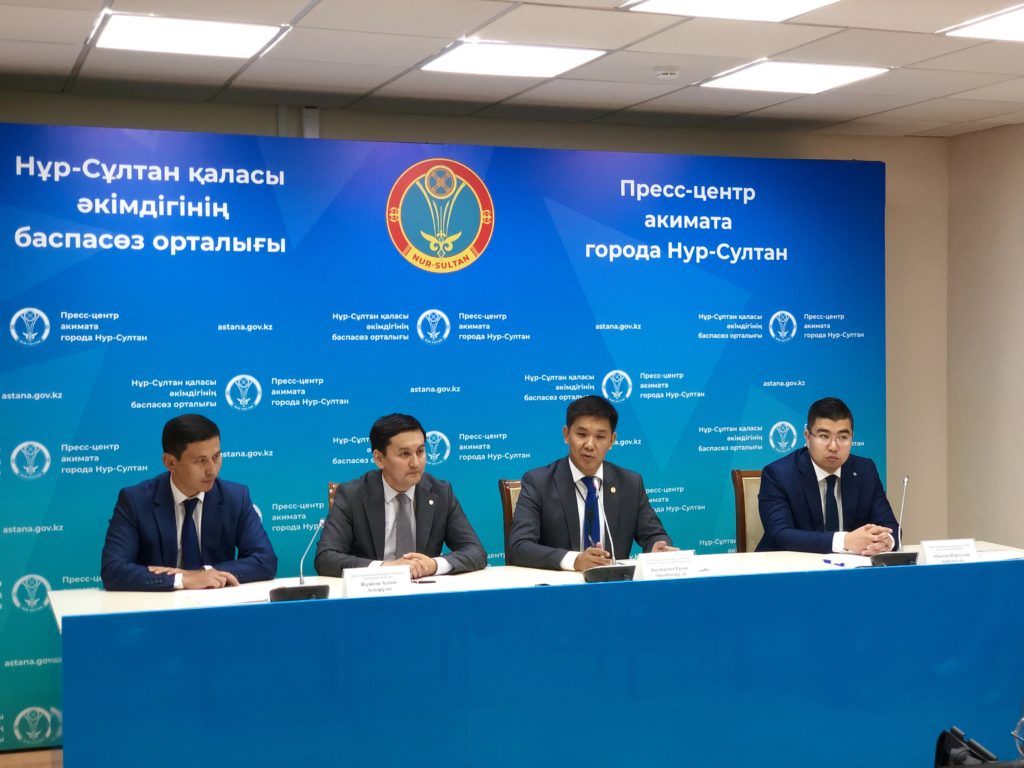NUR-SULTAN – Kazakhstan’s Economy of Simple Things programme will create 16,000 jobs by 2025. The programme, launched in March, received 600 billion tenge (US$1.55 billion) to develop domestic production of daily consumed goods and services.
Twenty billion tenge (US$516.3 million) will be devoted to agriculture and 400 billion tenge (US$1.03 billion) to support the processing industry and service sector.
“It is important to note that the funds were allocated for the entire country with no peg to the regions. The regional office will consider projects across the country,” said Damu Business Development Fund Regional Director Nursultan Abdulla at an Aug. 14 briefing.
Businesses can apply for lending through the country’s nine second-tier banks. Large, small and medium-sized businesses producing goods on the 365-item priority list are eligible for loans.
“Among them are food products, processed products in the agricultural sector, furniture, plastic products and clothing. The programme also includes the reconstruction and construction of student dormitories, schools and preschool institutions and creation of wholesale distribution centres to store agricultural products,” he said.
The interest rate will be up to 15 percent for a maximum of seven years. The Damu Fund will subsidise nine percent.
The loans are given for investment and working capital, said Abdulla. There is no limit to the amount businesses can request.
Businesses will also need to either retain or create more jobs or ensure 10-percent revenue growth after two years.
“The financing and subsidising term for the loan taken for investments purposes is up to seven years and for the working capital up to three years. At the same time, the ratio is 50-50,” he said.
The fund also provides guarantees that can help businesses ensure sufficient collateral.
“Businesses can obtain up to a 50-percent guarantee on loans of three billion tenge (US$7.7 million) or less and 20 percent on loans of three (US$7.7 million) to five billion tenge (US$12.9 million). All guarantees are free,” he said.
Four subsidy agreements for 1.5 billion tenge (US$3.8 million) were signed in the capital and four agreements for 275 million tenge (US$709,926) granted guarantees worth 105 million tenge (US$271,062).
“Two projects worth 6.3 billion tenge (US$16.3 million) are under consideration and 15 projects worth 3.5 billion tenge (US$9 million) receive support from the fund consultants,” said Abdulla.
The regional project office, which supports programme participants from developing a business plan to financing, operates in the capital, said Nur-Sultan City Business Chamber head Almat Dzhunussov. It includes representatives of the city’s investment and business development department, Damu Fund and second-tier banks.
Small and medium-sized enterprises (SMEs) are the key driver of economic growth, said Nur-Sultan City Investment and Business Development division head Yerlan Bekmurzayev.
SMEs represented 27.8 percent of Kazakh businesses in 2018 and the government is seeking to reach 30-35 percent by 2025. More than three million people, nearly 30 percent of the country’s working population, run SMEs.
“The share of SMEs in the capital is 58.8 percent. This is the highest share across the country and we are proud to pass the 50 percent threshold,” he said.
City officials are now working to determine the site for additional special economic zones (SEZs) in the capital to provide more space for businesses. The capital currently has two – Astana-New City and Astana Technopolis.


